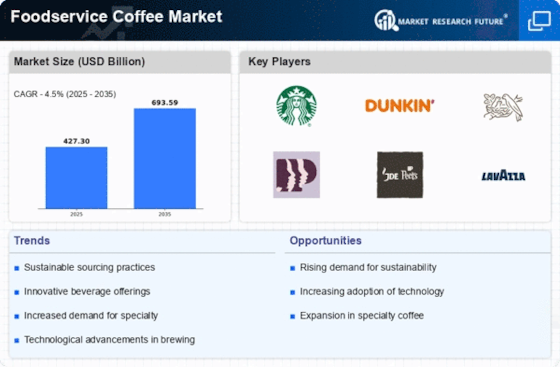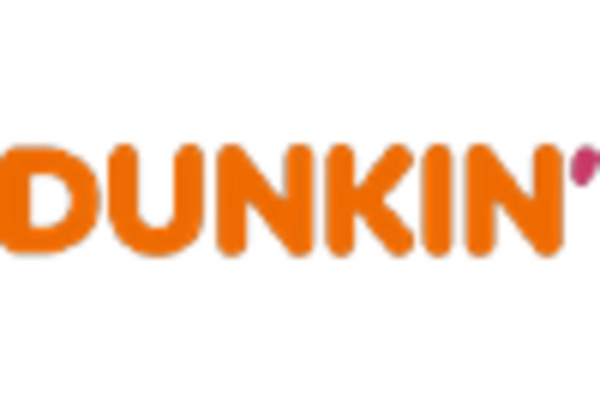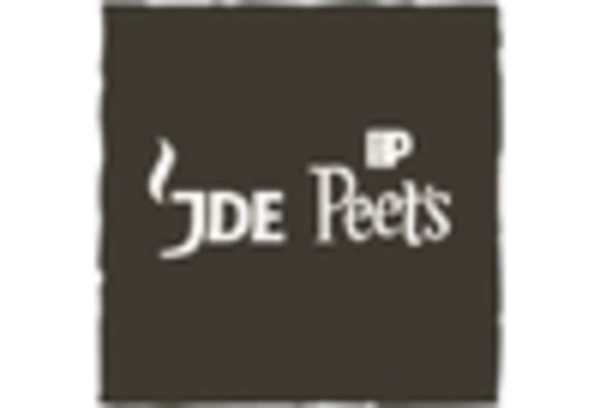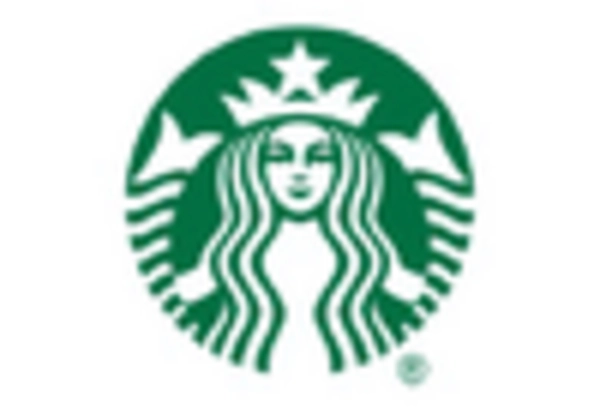Market Analysis
In-depth Analysis of Foodservice Coffee Market Industry Landscape
The foodservice coffee market has undergone significant shifts in recent years, shaped by changing consumer preferences, technological advancements, and evolving dining habits. One prominent trend is the growing emphasis on specialty coffee in foodservice establishments. Consumers are increasingly seeking unique and high-quality coffee experiences, driving the popularity of specialty coffee shops, cafes, and upscale restaurants. This trend is not only about the beverage itself but also extends to the entire coffee experience, including the origin of beans, brewing methods, and presentation.
Another key market trend is the rise of customization and personalization in the foodservice coffee sector. Consumers, especially younger demographics, value the ability to tailor their coffee orders to match individual taste preferences. This has led to the popularity of made-to-order coffee options, diverse milk alternatives, and an array of flavored syrups. Foodservice establishments are responding by providing customizable coffee menus, allowing consumers to create their own unique coffee concoctions.
The digitalization of the foodservice industry is influencing the coffee market, with the integration of technology in ordering, payment, and loyalty programs. Mobile ordering apps, contactless payment options, and loyalty rewards through smartphone apps are becoming commonplace in coffee establishments. This trend not only enhances the customer experience by providing convenience but also enables businesses to collect data and tailor offerings based on customer preferences, driving customer loyalty.
Sustainability is emerging as a significant factor in the foodservice coffee market. Consumers are increasingly concerned about the environmental impact of their choices, prompting coffee establishments to adopt sustainable practices. This includes sourcing ethically produced and environmentally friendly coffee beans, implementing eco-friendly packaging, and reducing waste through recycling initiatives. The sustainability trend is not only driven by consumer preferences but is also seen as a strategic move to enhance brand image and meet regulatory expectations.
Cold brew coffee has gained remarkable popularity, representing a significant trend in the foodservice coffee market. The demand for cold brew is driven by its smoother and less acidic taste, making it a preferred choice for consumers seeking a refreshing and bold coffee experience. Foodservice establishments are expanding their offerings to include a variety of cold brew options, including nitro cold brew, flavored cold brews, and ready-to-drink cold brew products.
The foodservice coffee market is witnessing an increased focus on health and wellness, leading to the incorporation of functional ingredients and alternative brewing methods. Coffee with added nutritional benefits, such as antioxidants, vitamins, and adaptogens, is gaining traction as consumers seek beverages that contribute to overall well-being. Additionally, alternative brewing methods, such as pour-over and French press, are being embraced for their perceived health benefits and the unique flavor profiles they offer.
However, challenges exist in the form of market saturation, competition from at-home coffee options, and economic uncertainties. The coffee market is saturated with numerous players, from large chains to independent cafes, leading to intense competition for market share. Additionally, the rise of high-quality at-home coffee options, including specialty coffee beans and advanced brewing equipment, poses a challenge for foodservice establishments as consumers may opt for the convenience and cost-effectiveness of making coffee at home. Economic uncertainties and fluctuations in coffee prices can also impact the profitability of foodservice coffee businesses.



















Leave a Comment